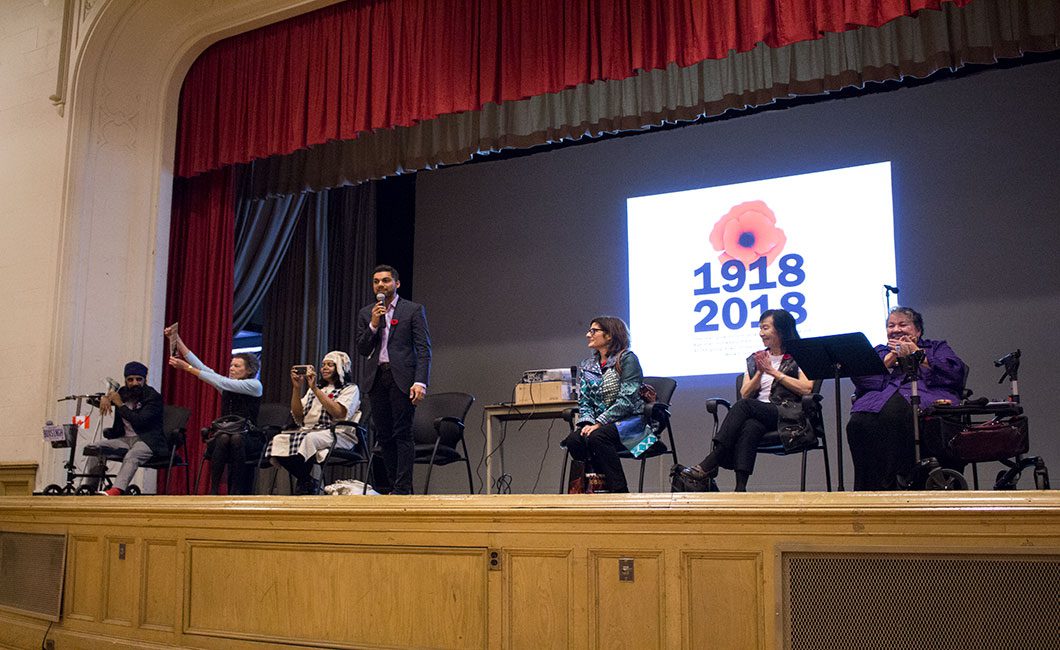Remembrance Day reminds us about those who fought for Canada during both world wars, and Danforth Collegiate’s assembly on Nov. 8 focused on making sure discriminated-against minorities who served are among those remembered.
“What I’m hearing on this stage is how many groups of incredible people dealt with hatred in this country and yet stood up and fought for it,” Joanne Dallaire told the assembly.
Dallaire, a Cree elder and educator for Indigenous concerns at Ryerson University, was among six diverse speakers at the school’s Remembrance Day panel discussion.
Speakers from Indigenous, Sikh, Jewish, Black, and Asian backgrounds moved the students who showed, by a raise of hands, they learned something new in that auditorium.
“I learned that Canada has buried its deepest, darkest secrets into the corners of history,” Grade 10 student Joaquin Kataoka said. “We really need to remember all of the people who helped win the war.”
The reasons for fighting in the war for a country that overtly oppressed minority groups wasn’t always sensical, Toronto historian Arlene Chan said.
But for the men and women of minority backgrounds, a sense of honour and patriotism was felt for serving Canada in both wars, according speaker.
“Fight now, vote later,” Chan recalled in her storytelling from a Chinese man who fought in the First World War, despite discrimination from Canadians and criticism from his community. The Chinese man was Canadian-born, and his right to vote was not honoured until after the Second World War.
“What the Canadian government to this day has never officially recognized are the 17,000 Canadians of Jewish faith who put on a uniform, went to stop Hitler, and rescued survivors of the Holocaust,” said Ellin Bessner said, a Jewish-Canadian journalism professor and author.
“It was pretty upsetting to hear that people who fought in the war weren’t being recognized for being part of something big,” said Nusrat Basher, a student in the audience.
The history school curriculum is responsible for including all stories, said Pardeep Nagra, an advocate for Sikh rights.
“It’s the job of the teachers to engage in a more inclusive and accurate curriculum,” Nagra said.
Nagra added that speakers cannot always be available each year to speak at all Toronto schools. It is the teaching system that has to include more diverse history studies.
Grade 10 history students from Danforth Collegiate, Malvern Junior Public School, Monarch Park Collegiate Institute, Greenwood Secondary School, and East York Collegiate institute attended the discussion.
They also heard from Black speakers Kathleen Grant and Sheila White who shared North American and West Indian stories of Black men and women who were a part of the wars.
“I want you to remember the importance of fighting small social battles that you’re going to face,” Dallaire said. “And until we can treat all citizens equally in this country, we haven’t won the war of humanity.”

